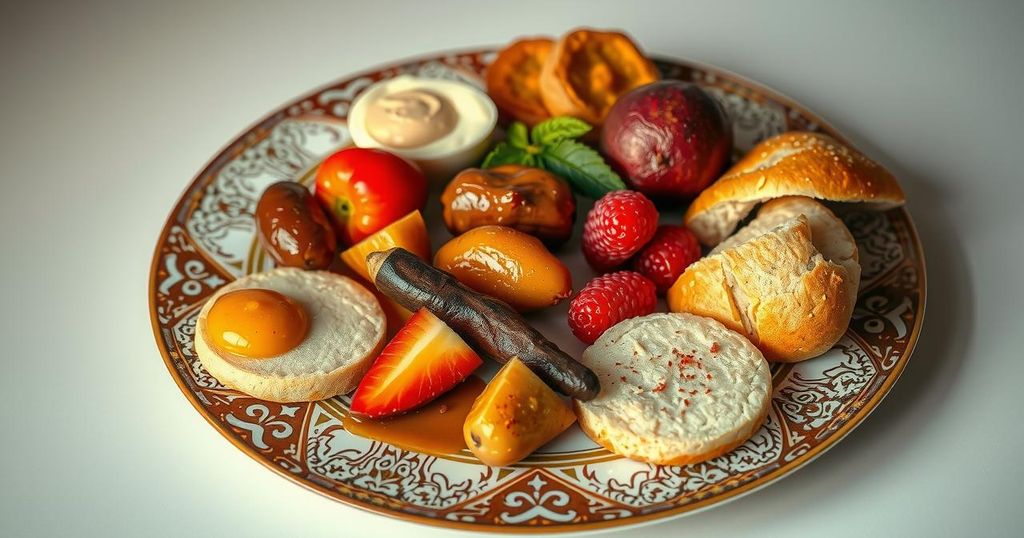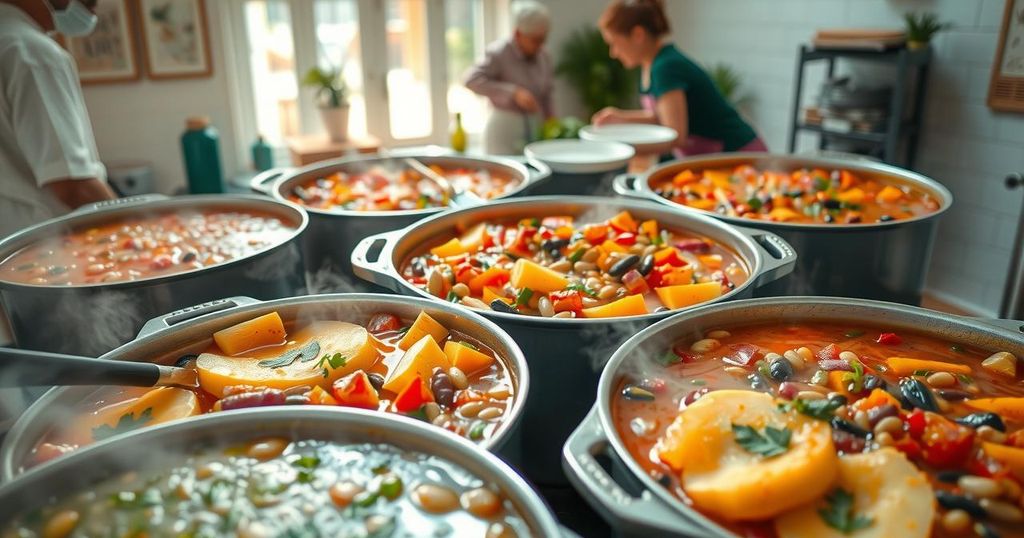Ramadan Eating Habits: Balancing Tradition, Health, and Sustainability
During Ramadan, Moroccan households witness a significant increase in food consumption, particularly during iftar, leading to substantial waste and strain on budgets. While some individuals adapt their eating habits towards healthier choices, challenges regarding excessive preparation and cultural expectations persist, with notable health concerns arising from overeating. Balancing tradition with mindful approaches can enhance the spiritual significance of Ramadan.
The second week of Ramadan sees Muslims around the world embarking on a month characterized by fasting until sunset. In Morocco, this sacred month transforms daily routines as banks, schools, and businesses adjust their hours. Households prepare in advance, stocking up on essential ingredients, while the shopping frenzy in supermarkets rises significantly during this time. Consumption of food reportedly increases by 40 to 50 percent, driven by impulse buying and extravagant preparations.
Iftar, marking the breaking of the fast, has become a central aspect of Moroccan traditions, featuring lavish meals spread across large tables. These gatherings celebrate family unity after a day of fasting. However, the cultural emphasis on bountiful iftar tables leads to substantial food waste, with tons of food discarded daily. Amid economic pressures exacerbated by rising food prices, this tendency strains household budgets and contradicts Ramadan’s core values of restraint and gratitude.
For many, particularly women, Ramadan brings additional pressure. Maria, a housewife from Rabat, expresses that the expectations for elaborate meals lead her to spend the majority of her time cooking instead of focusing on her spiritual growth. She notes that much of her culinary labor results in food being wasted, reflecting a troubling trend across Moroccan homes, where on average, 91 kilograms of food are wasted annually.
In contrast, some individuals are redefining their iftar preparations to favor healthier, more balanced meals. Shaima Salmi, a public sector employee, emphasizes the importance of smaller, nutritious portions that are easier to prepare. Sociology experts like Dr. Ahmed Drissi highlight how modern influences have altered traditional practices, shifting focus from communal meals to individual preferences, and transforming iftar into an opportunity for social competition.
The relationship between overindulgence during iftar and health concerns cannot be overlooked. Dr. Faiçal Serrou, a physician in Rabat, reports a rise in digestive issues linked to excess consumption of high-calorie foods. He urges moderation and suggests including healthy options such as vegetables and whole grains in iftar meals. Nutritionist Mariam Khaldi similarly warns against the pitfalls of prioritizing quantity over quality, stressing the necessity of mindful eating and hydration during this holy month.
As Ramadan progresses, it is vital to reflect on the cultural and health implications of current eating habits. The pressure to prepare extravagant iftar meals often leads to waste and financial strain, posing challenges, particularly for low-income families. Emphasizing moderation, health, and spiritual reflection can pave the way for a fulfilling and sustainable Ramadan experience.
Original Source: www.moroccoworldnews.com




Post Comment